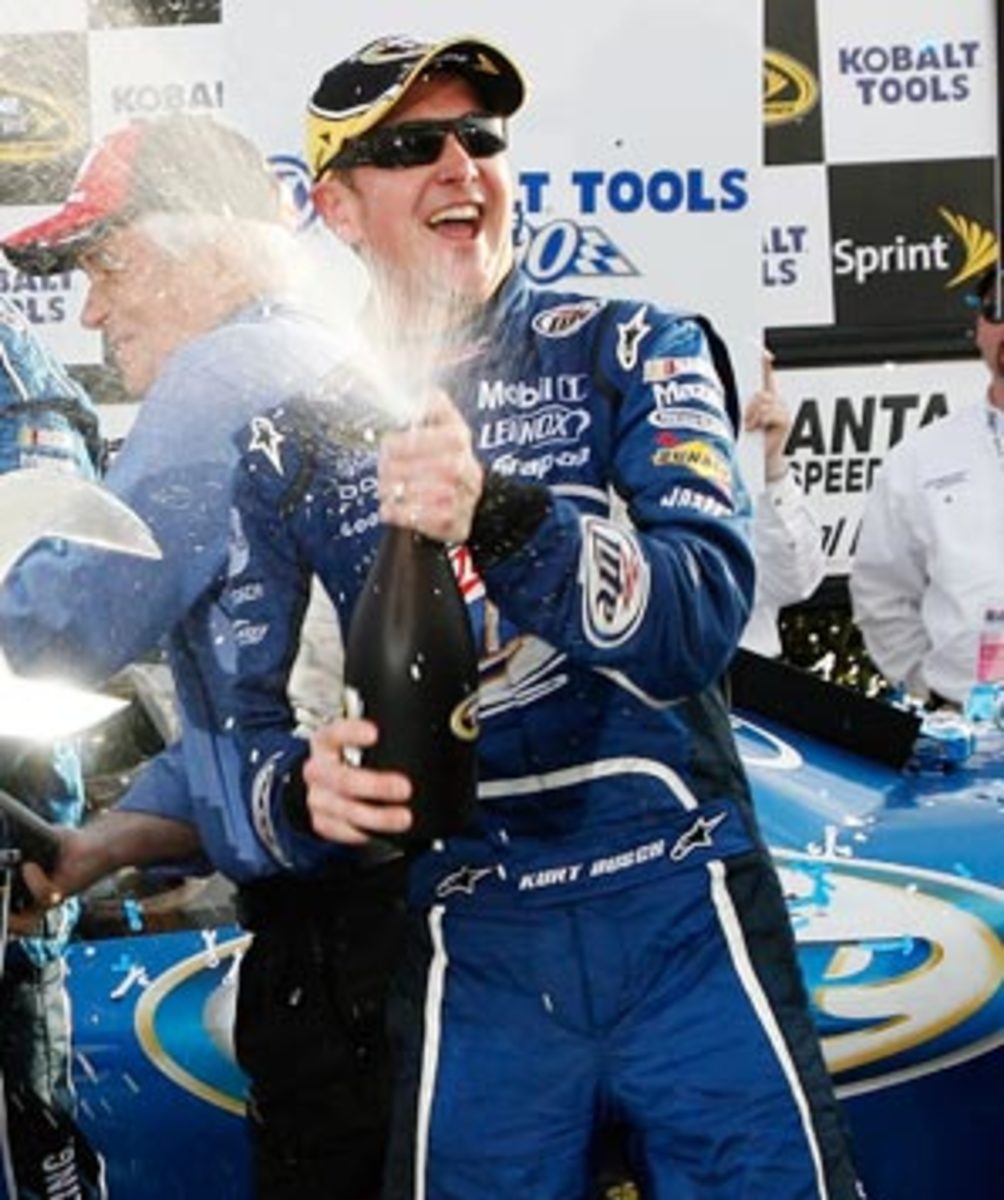In the Car of Tomorrow, explaining success isn't easy
With its nuts, bolts and gears, there isn't much room for mystery in NASCAR. Perhaps more than any other sport, it is an enterprise that fans can touch and feel and see and hear.
There are no offensive or defensive philosophies. The game doesn't encourage sabermetric-style analyses that reveal not-so obvious truths. In racing, you go fast, turn left and win. It's that simple. A driver needs a fast car and nerves of steel to be a championship contender.
And yet, for the casual fan of today's NASCAR (like me), there are some things that remain unknowable. The big mystery to me is and always has been, What makes a car go fast? There are some obvious answers to this question -- engine power and aerodynamics play a big part, of course -- but in the Cup series, where every car is fast (except maybe the one driven by Paul Menard) the difference between Victory Lane and 43rd-place can be miniscule.
The conundrum has only been made worse by the Car of Tomorrow and its extremely tight template, a fact which is exacerbated every time I'm sent out to report on a team that has made a dramatic turnaround. In my first season on the beat, when the new car was used for just a fraction of the schedule, drivers and crew chiefs had firm answers to questions like, What's different this year? But these days, responses to such queries always run along the lines of: It's a million different tiny little things.
It's just another way that individuality is bleeding out of racing. The cars look the same. The drivers look the same. The races look the same. And when the standings look different, nobody can quite put their finger on the reason why.
Just listen to Kurt Busch talk about the dramatic improvement of his team this year: "We've worked on all areas. Last year everybody would ask: 'What areas do you think you need to improve on to make your car a championship-caliber car?' We couldn't put our finger on just one thing. I think we had to look at all areas and make every area better. And we've had a lot of people pulling the rope in the same direction, helping us do that. Engines, aerodynamics, setups, you name it, we're doing it better."
The sad thing is, he's right. For my part, I think he's not giving enough credit to the new Penske engines. According to former Penske driver Ryan Newman, the old ones were short on horsepower. When I tried to talk to Busch back in January about the new engines, though, he quickly shifted the conversation to all the other changes that his team had been working on. His point was that the engines might help, but there were a lot of other areas that he thought were going to make just as much of a difference.
There can be little doubt that, whatever the reason, Busch is a championship contender again -- and seemingly in a way he wasn't two years ago when he made the Chase. He won two races that year, but for the most part seemed to be driving cars that were worthy of the top-10 on most days, but not Victory Lane. But after his dominant win at Atlanta two weeks ago, Busch looks like he's going to be behind the wheel of a top-three car more often than not. He's third in the Cup standings, with three top-10 finishes in four starts.
So the short answer to the resurgence of Kurt Busch is his engine. But the real answer is something much more complex, knowable only to a few. As exciting as it must be for the folks at Penske, it's something I'm having trouble wrapping my arms around.
13: Current ranking of three-time champ Jimmie Johnson in the Cup points standings
13: Johnson's ranking after four races last season
4: Consecutive Bristol races Johnson has finished outside the top 10
73.0: Johnson's driver rating at Bristol, the worst for him at any Cup-series track
I was going to offer this -- a clip of Jeff Burton's appearance on General Hospital last Wednesday -- without comment. It's that goofy. But after thinking about it a bit, I think this clip seems to deserve some sort of coda. So take a minute and watch, then meet me after to discuss...
My big observation: I don't think it would have been too much to ask for them to reshoot the scene so it wouldn't seem like the actor who introduces Burton forgets who he is for a second. (And let's be honest: in the real world, he has no idea who Burton is.) The Big Moustache squeezes out the line, "Who'd have thought world famous..." and then needs a beat or two before he remembers Burton's name and affiliation. You almost expect the guy to scream out, "Line!" Were they shooting live that day or something?
As for Burton's performance, yes it's wooden. But frankly, considering the amount of ham thrown in by the show's two regulars, I think its ligneous quality gives the script some much-needed dignity.






